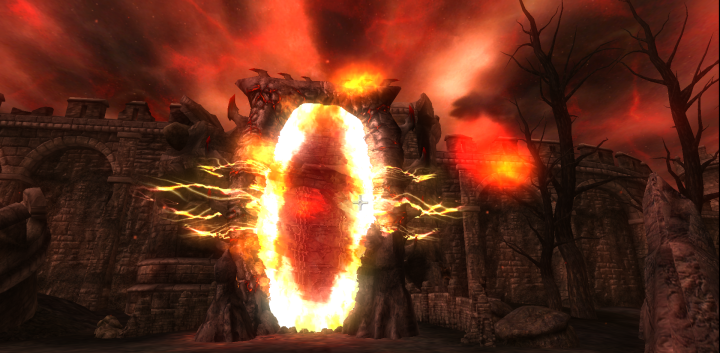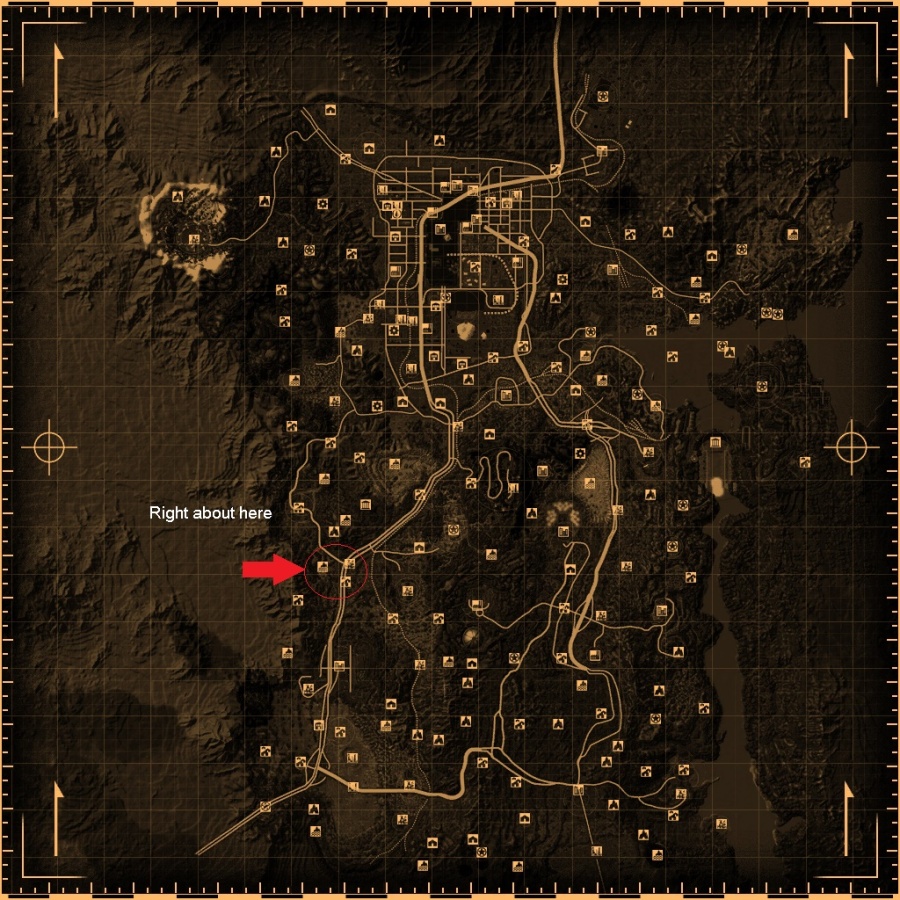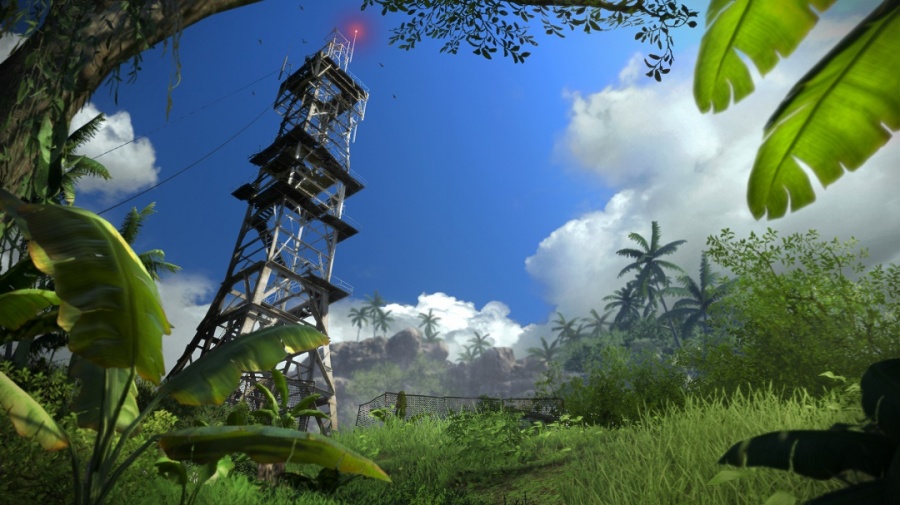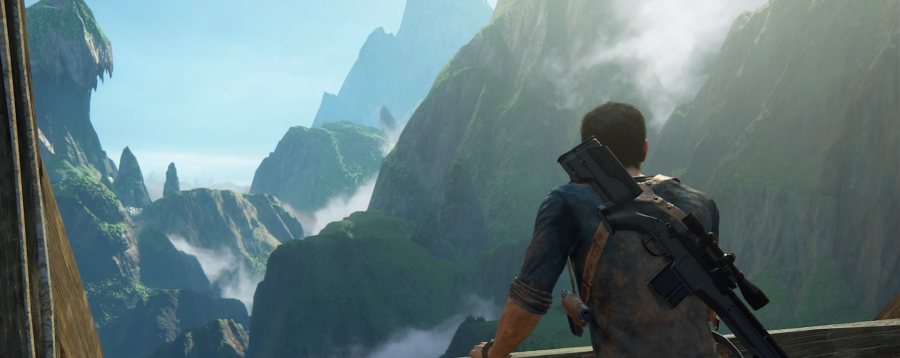The following opinion is… opinion…
One of my favorite games I played last year (2016… keep up, people), the one that ended up boring me the most, and the one that I genuinely hated playing all have one major thing in common: they are all open world games. They share other similarities, but when the controller gets set down and the game disk gets put back in the box (yeah I prefer physical disks), they all left different feelings in me.
Watch_Dogs 2 succeeded where many Ubisoft games have instilled a sense of dread in me. Ubisoft has more or less become synonymous with cookie-cutter style open world games. Their last major attempt at creating a game that didn’t rely on the open world style has been Rainbow Six Siege, a game that I really wanted to like, but just couldn’t. Hell, they’ve even taken to converting the long-standing Ghost Recon franchise into an open world title, and while I’m really hoping it’s good, it’s hard to ignore the possibility that it might suffer the same issue as so many other open world games.
The trend in the industry has apparently been leaning towards the mentality of making sandbox games for some time. As it turns out, I’m not alone in this thinking. Jim Sterling recently uploaded a new Jimquisition video outlining the problem of open worlds; one that inspired me to finally write this article (I’ve been deleting and rewriting this since March of 2016) and is definitely worth watching. With this all in mind, questions need to be asked. Are open world games bad in general? What makes a good one? Is this trend a good or bad thing?
Let’s Look At The Good Ones

I’m won’t say that all open world games are bad. In fact, I’d honestly have to say that the majority of games that I enjoy playing are of the open world variety. One of my all time favorites, The Elder Scrolls IV: Oblivion, falls into this category. In it, you’re presented with a large world that is almost entirely open for you to explore from the get-go. You have the main quest that you can choose to embark on or you can forge a different path, making a name for yourself.
For those that don’t want to dive into the main story, there are a number of expertly created side quests to complete, unique dungeons to explore, and interesting personalities to meet (Glarthir comes to mind). The world is littered with all manners of places that you’re free to visit, and when you’re done exploring Cyrodiil, you have the Oblivion crisis to solve.
Fallout: New Vegas follows in a similar vein, eschewing throwing the player into a sandbox of random tasks to complete. Instead, you’re given a large area to roam around in, with restrictions only placed in the form of extremely deadly monsters that will rip your flesh from your bones without hesitation if you head in the wrong direction.

Yeah don’t go there right away…
Players are rewarded for abiding by the sadistic restraints with one of the most interesting stories about the struggle for power that I’ve seen in some time. Each main quest brings you closer to your revenge, but the curtain rolls back to reveal a threat to the tenuous peace in the Mojave. Fallout: New Vegas succeeds as an open world game because it gave the world meaning, and the player purpose for being in it.
Even games like Watch_Dogs 2 and Grand Theft Auto V handle the open world well, giving you meaningful tasks to complete. Sure, there are still the tropes of sandbox games present in the form of collectibles and simplistic side quests present, but they function as complementary additions to the game, not filler material. Both provide the player with plenty to do before they even start into the side content.
Bloatboxes: Sandboxes Gone Wrong

I HATE tower climbing mechanics…
On the other end of the quality spectrum are the games that I lovingly call bloatbox games. These are the ones that are packed to the brim with mind-numbing filler material, as if the publisher decided that the developer put in enough interesting stuff already and the rest could just be stuffed with padding.
Far Cry 4 comes to mind… A game that you can literally beat in about 15 minutes, without using exploits. Barring going for the vastly superior ending, one can play through the main story missions in about 15 hours, with the rest of the game consisting of repetitive side quests, tower climbing, and a god-awful amount of collectibles and unlockable gear. What I’d generously call side content in Far Cry 4 is just so incredibly dull. Why is Ajay Ghale spinning all the mani wheels and tribal masks? No idea, but for some reason he gets equipment for free just for doing it.
Mad Max and Fallout 4 also come into play here, displaying many of the hallmarks of seemingly lazy game design.
Mad Max entered the scene as a technical and graphical heavyweight, showcasing some pretty impressive visuals, but despite the pretty coat of paint it’s incredibly bland. Like Far Cry 4, the map is littered with objectives to complete, but the gameplay involved in those activities are both inconsequential and lack any sort of depth. Fallout 4 fell into this same trap by utilizing radiant quests in addition to reusing the same locations for multiple missions despite the map being huge. Neither gives you much of a compelling reason to do anything outside the main story aside from simply doing it to build your character and become more powerful.
However, if there’s a prime example of a bloatbox game, it’d have to No Man’s Sky. Keep in mind that I did like it for a while, but the repetitious nature of it grew old after jumping to new systems about a couple dozen times. I don’t mean to sound too pretentious, but it lacked soul. The flimsy reason to continue to the center of the galaxy proved to not be enough for me to stick with it. No Man’s Sky proves that size matters, though just because it’s huge, doesn’t mean that it’s going to be used properly.
The common problem here is that the extra content included in bloatbox games feels like padding, because that’s exactly what it is. There’s no substance or soul to what the developer adds in, it’s just included as a checkbox to be filled.
What Are The Alternatives?

Open world games can feature interesting sandboxes in multiple ways, though this isn’t an exhaustive list of the ways open world games can avoid becoming bloatboxes.
Grand Theft Auto V accomplishes this by putting the narrative at the forefront of using the map. Most of the locations in GTAV are utilized in the course of the story unfolding, and the story itself actually proves to be quite interesting too (which certainly helps). Watch_Dogs 2 follows in those footsteps by fleshing out the characters and providing one of the most entertaining storylines that I’ve played through in some time. The Elder Scrolls: Oblivion and Fallout: New Vegas also took this approach, where the developers seemingly focused on the story above all else.
That isn’t to say that is the only method of avoiding the bloatbox conundrum.
One surefire way is to avoid the use of an open world entirely. The game that would make it as a Game Of The Year for me would probably have to be Uncharted 4, which is quite notably not an open world game. In fact, many of my personal favorites aren’t open world at all: The Mass Effect series, the Deus Ex series, as well as Uncharted 4 and The Last Of Us. They secured a place in my heart, not because they have massive open worlds to explore, but because they are genuinely good games with excellent storylines to experience.
I lament the trend in the gaming industry to lean on open worlds as a way to secure a foothold in the market. Not every game needs to be open world. So often now, these games are released with gigantic, yet empty worlds. There’s so much space for cool stuff to happen, but that cool stuff almost never happens. Instead you’re treated to radiant quests, tower climbing mechanics, and tons of collectible bullshit.
I’m not saying that I’d like to see open world games die, just that I want to see more developers realign their focus. We need less games like Far Cry 4 and more like Dishonored. We need more games that shed the idea that gameplay and story are checkboxes to be marked off, and focus on playing to their strengths instead.
Right now, the road that gaming seems to be heading down doesn’t look very promising. All the buildings look the same and they lack the charm that we’ve enjoyed in the past.
Tell a story with interesting gameplay, and if the game actually works as an open world, do it. I want to see developers make games into open worlds because the game they’re creating will actually benefit from it; that something will actually be added. If studios want to make gigantic worlds to explore, let’s see them make those worlds feel like worlds. Craft an interesting universe, fill it with compelling characters, and remarkable quests to complete.
Because making a game that deserves the title of bloatbox isn’t something to be considered a badge of honor. It’s a call to action to do better.
Did you like this post? You should click “Like” if you did. Feel free to follow Falcon Reviews as well. You can also find me on Twitter and even send me a direct email to FalconReviewsBlog@gmail.com!

…God, I hate climbing towers.
LikeLiked by 1 person
So many open world games have this stupid mechanic now. It was cool in the first Assassin’s Creed, and neat in Far Cry 3 I guess, but it didn’t need to become the go-to for revealing the damn map…
LikeLike
Bloatbox is a great term. Assassin’s Creed Unity (the game that killed the series for me) was horrible for that. So much nonsense all over the place.
I’ve been thinking about open world games a bit recently. I’m not a fan of most in the genre (although I recently bought Watch Dogs 2) due to them often focusing on little side activities which pull me away from the story line. I like a good story in my games, and things that make me forget why I should care about the protagonists are a death sentence for me when it comes to story.
LikeLiked by 3 people
The side activities can be a little much. I don’t mind as long as they’re truly optional, but some developers like to give big rewards for completing them, which makes it difficult to not want to do.
That’s why for as much as I think the Uncharted collectibles are crap, not much is taken away for not getting them. Unfortunately, the same can’t be said for games like Batman: Arkham Knight or Assassin’s Creed Unity.
LikeLiked by 1 person
I’m ok with them if there’s a good reason for them too, perhaps that ties into the story. The pages in Alan Wake (not open world, but it illustrates collectibles well) were a good addition as they worked with the plot. The coffee flasks though were utterly pointless and slowed the pace of the game horribly.
LikeLiked by 1 person
It’s funny that two different things in the same game can show the good and bad in collectibles.
LikeLike
I agree with this so much. Just because current technology makes open world games more possible than ever doesn’t meant it’s the right choice for most games. I struggled a lot with Dragon Age Inquisition because it felt like they had built an open world just for the sake of doing it… then they filled it with repetitive side quests and fetch quests that took hours, and you HAD to do them to get enough points to progress with the main story. It just did not work for me. I’m glad you mention GTA V because I forgot about that game, but it’s such a great open world! Same with Witcher 3 which also focuses on the characters and story, and makes all the side content both rich and optional.
LikeLiked by 2 people
Great article! It’s definitely hard to make a good open-world game. Like in Dragon Age: Inquisition, the world was beautiful and really created a sense of the magnitude of the world the characters were living in, but other than some companion-character dialogue, some side quests, and an occasional unplanned encounter with a bear, most of the time was spent… walking silently through the game. Coming from Dragon Age: Origins and DAII, it seemed like Inquisition wasn’t sure what to do with its size.
Compare to Shadow of Mordor, which is open world, but the whole place feels *alive* and vibrant no matter where you go. It was a smaller world than Inquisition, but it was still massive. And never felt like a slog to get through.
So, to answer your question, no, open world is not always the answer! Different games have different strengths and should play to them. Just because XYZ open world game sold well, doesn’t mean open world is going to translate well to your hitherto-not-open-world game.
LikeLiked by 1 person
I completely agree.
Unfortunately, I think developers seem to value quantity over quality. I’d rather have a smaller world to play in that’s full of detail, meaningful missions and activities than a huge soulless one full of collectibles and towers.
As much as I love games like GTA and Skyrim, I find myself going back to more linear games nowadays. Just recently I played Brothers: A Tale of Two Sons for the first time. It’s short and linear, but I had a far more rewarding time with it than I would have had collecting pointless tat in some boring, lifeless sandbox.
LikeLiked by 1 person
[…] money? Perhaps. I feel that Falcon509 discussed this far better than I will with his blog post here. Anyway, I don’t have a problem with open worlds as much as the emptiness that pervades so […]
LikeLike
[…] open-world concepts very creatively, but like many other games, it seems to avoid whatever issues that most other open-world games suffer from. Running around in the robotically ruled wilderness somehow doesn’t get old, and the variety […]
LikeLike
[…] They apparently wanted to pair the Mass Effect universe with procedural generation with the aim of giving players hundreds of worlds to explore, not just […]
LikeLike
[…] big, and was certainly full of things to do, the story was ultimately spread very thin. Recently open-world bloat has been a topic of interest, and unfortunately Mass Effect: Andromeda fell into the trap. It […]
LikeLike
[…] into common traps, like focusing too much on the minutia, focusing on graphics over anything else, making a huge world to explore, shoehorning in character customization, or trying to capitalize on fan […]
LikeLike